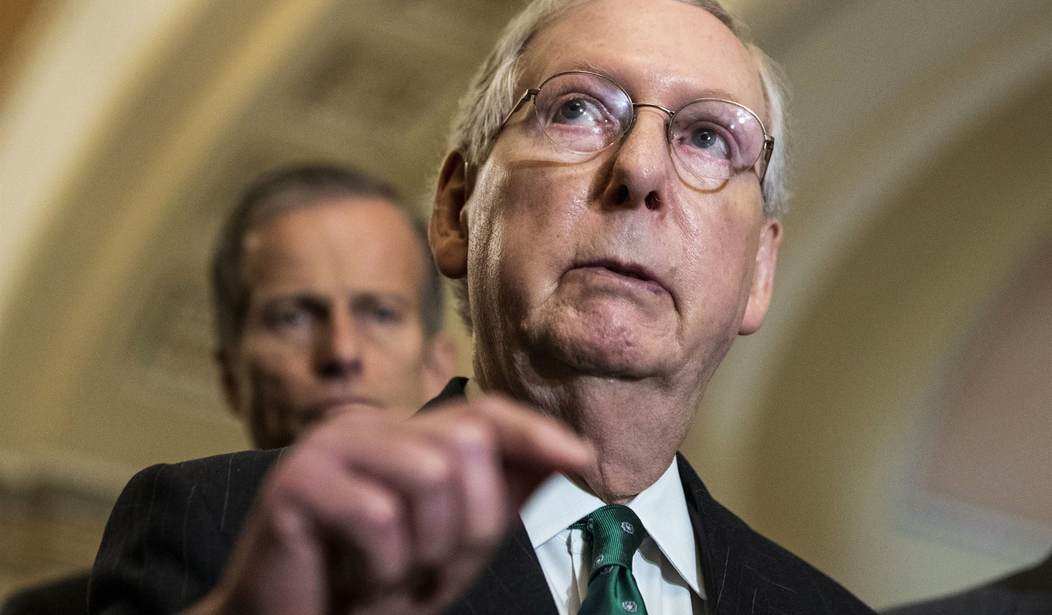President Trump has hundreds of unfilled presidentially-appointed positions because Democrats have stalled the nominations process out as much as their diminished power in the post-nuclear Senate has allowed.
But it is the Republican majority that has placed a total blockade on the usual safety valve for temporary appointments - the recess appointment power - by refusing to go on recess for the last two years. And with Democrats set to take the House and be in position to deny the Senate consent to recess starting January 3, there is a real possibility that President Trump will go an entire presidential term without being able to make recess appointments.
It has been nearly eight years since the United States Senate officially recessed - a streak aided by the practice of holding so-called pro forma sessions every three days throughout every adjournment. Those sessions - which consist of nothing but gaveling in and out and where, by unanimous consent, no business is conducted - serve a single purpose: to deny the president of the United States the recess appointment power, which is a constitutionally authorized power to temporarily install nominees to executive and judicial posts without Senate advice and consent.
President Bill Clinton used the recess appointment power 139 times, including 96 full-time positions. President George W. Bush used it 171 times, including 99 full-time positions. But recess appointments under Bush screeched to a halt in his final two years in office, after Democrats took control of the Senate and, for the first time, implemented pro forma sessions to avoid an official recess.
Recommended
In Obama's first two years, with Democrats in control of Congress, recesses were back and he made 28 recess appointments, all to full-time positions, in his first two years. Then Republicans won the House of Representatives and withheld consent from the Senate to recess, forcing the pro forma sessions to come back. They continued through the last six years of Obama's presidency, though he attempted to disregard them and make recess appointments anyway in 2012, which were struck down unanimously by the Supreme Court in NLRB v. Noel Canning.
The pro forma gambit is legally valid, and therefore the president cannot make recess appointments unless the Congress decides to officially recess, which hadn't happened since 2010.
You might reasonably expect no president will ever get recess appointments again except when the same party controls the House, Senate, and president. But for the last two years, the same party - the Republican Party - has in fact controlled the House, Senate, and president. And yet, the Senate has never recessed.
This curious fact has received surprisingly little attention.
Is McConnell blocking Trump for his own strategic reasons? Perhaps to establish that no recesses will ever be taken again, forcing all appointments to go through the Senate confirmation process?
If so, that seems to be somewhat at odds with constant Republican complaints about Democratic stalling and obstruction of Trump nominees.
Is McConnell concerned that, given the free hand of a recess, Trump would make some truly terrible appointments? If so, perhaps negotiating a list before agreeing to recess could allay that concern.
Or does McConnell simply lack a Senate majority that would vote to adjourn without pro forma sessions? If so, perhaps holding a clean adjournment vote would at least serve the clarifying purpose of showing the American people which Republican senators are intent on blocking Trump recess appointments.
If President Trump wants to lift the legal cloud from his acting Attorney General and temporarily fill vacancies across the federal government, the administration needs to press hard for the Senate to adjourn for the year with an official recess.
But if we're simply in a new era in which the Senate protects its institutional power by never officially recessing, it would be nice for somebody to inform the American people.

























Join the conversation as a VIP Member